
Gino was an unlikely friend. A homeless man from the inner-city of Atlanta who had lived under the I-20 bridge for almost 20 years with his own history of mental health challenges, failed relationships, family loss, and substance abuse. I saw him every Monday night for three summers and quickly made myself at home each week by sitting on an overturned 5-gallon bucket—his guest chair in his home under the bridge. Gino never ate the hot dogs the mission team brought with us, but he simply wanted a conversation. After all, his daughter brought him dinner every night and he told me her Southern cooking was better than my hotdogs. No offense, baby.

Throughout my experience leading mission teams—from the inner city of Atlanta to the southern region of Africa—I have been struck by a phrase we use almost carelessly, without recognizing its power.
These people.
If you’ve been a part of mission work for long, you’ve probably noticed it, too. It’s a harmless phrase on the surface. Often packaged in a sentence like: “These people have so little, but they’re so happy” or “These people sure like their moonshine.” But it quickly gives way to generalizations or jumping to conclusions about an entire culture based on one interaction. It creates a separation between “us and them”. Although it may not be our intention, this kind of subtle phrasing keeps us at the center of the story—the hero—someone here to help “these people” who we believe cannot help themselves.
What was that widow's name again? I know we painted her house blue...
The life of Jesus modeled something entirely different, and our approach to modern day missions has a lot to re-learn from his example. He knew names. He healed by name. He slowed down in the midst of a crowd to look people in the eye. He was involved in the messy, broken and nitty-gritty parts of their lives. He made friends with some of the most unlikely people of his day, who society or the religious elite would have preferred to overlook. But he didn’t just treat them with compassion because it was a nice thing to do. He saw each person as truly deserving of dignity and respect because of their inherent value—the image of his Father looking back at him.
But too often I think we lose sight of the person for the sake of the project.
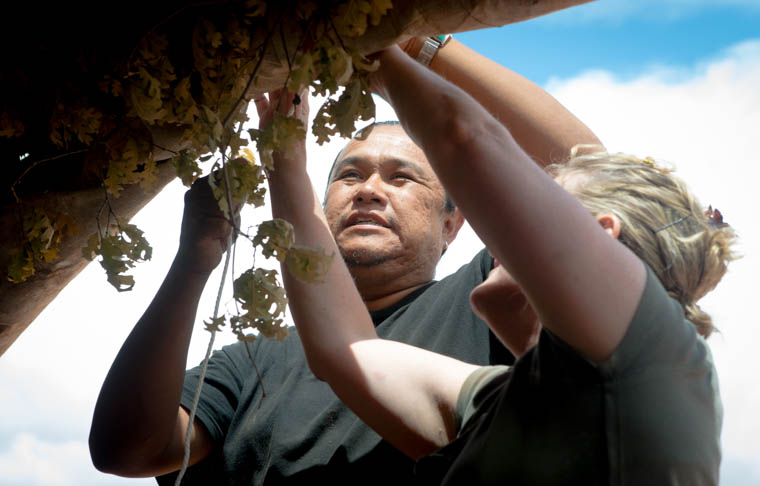
The night before I left for 6 months in Africa to lead the first-ever IMMERSION trip, I received a call from a random Atlanta phone number. I answered and immediately recognized Gino’s voice. He had borrowed a friend’s phone to call me and wish me well on my travels. He prayed for me. He reminded me to bring him back a souvenir and lots of pictures. After we hung up, I cried out of sheer joy and surprise. It was a humbling experience to say the least.
I never expected to become friends with Gino. The stories of our lives are so different. But he proved to me that our relationship could be one of mutual influence and impact. Because of the relationship we formed all of those years ago, it has changed the way I see men and women in my own community—as people with names and stories and hurts and hopes. Not just people who sit on the park bench or the street corner. Not just people who can be generalized or summarized with statistics. Not just “these people” who take up space in the background of our lives.
On the most basic level, our faith compels us to know and love others in a way that costs us a bit of ourselves:
"Love from the center of who you are; don’t fake it. Run for dear life from evil; hold on for dear life to good. Be good friends who love deeply; practice playing second fiddle."
- Romans 12:9-10 (MSG)
But to be honest, most of the time I view my life with me at the center. And if we’re not careful, we can take this perspective with us into missions, accidentally overlooking the very people we desire to know and serve.
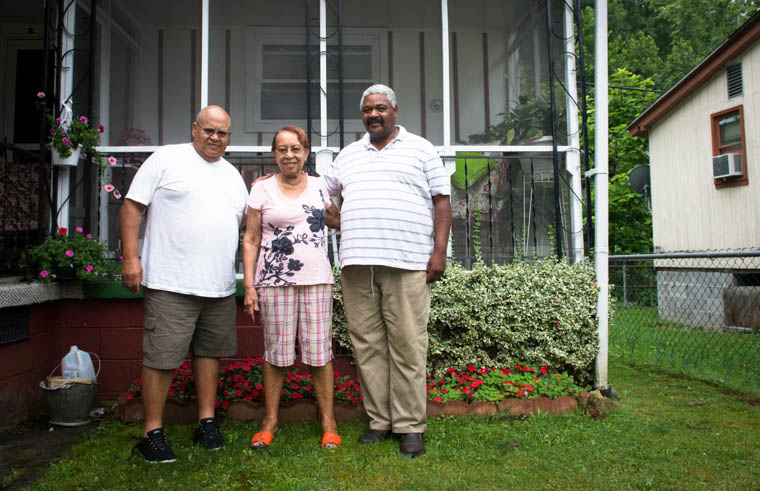
Lately, I’ve been intrigued by an online encyclopedia called The Dictionary of Obscure Sorrows, which catalogs words and phrases that evoke a lot of meaning but haven’t quite been accepted as real words in our formal dictionaries. These words attempt to fill the gaps in our language, to express something about the human experience we can’t quite say with another word. One of these words is sonder:
n. the realization that each random passerby is living a life as vivid and complex as your own—populated with their own ambitions, friends, routines, worries—an epic story that continues invisibly around you in which you might appear only once, as an extra sipping coffee in the background, as a blur of traffic passing on the highway, as a lighted window at dusk.
This word reminds us to slow down and see the people around us. To recognize the complexity of their lives in the same way we want our own lives to have significance. And if we begin to think this way about our daily interactions with one another, this approach can also begin to influence the way we serve. In fact, I think it could radically alter the way we do modern-day missions and help our approach more clearly resemble the life of Jesus.
.jpg)
Although it can be challenging to know where to start, there are a few intentional things we can do.
4 Ways to Build Authentic Relationships During a Mission Trip:
1. Pause long enough to know the color of someone’s eyes.
In Experience Mission’s DIGNITY training video, we talk about the power of looking into someone’s eyes and really knowing their story. We don’t want to just paint a widow’s house because it’s the right thing to do, but also because we see her as a person with inherent value who deserves kindness, respect and a home she can be proud to call her own.
2. Remember names and use them.
Even if the ability to learn and recall names doesn’t come naturally, we can all take steps to improve. The simple act of calling someone by name is a small way of demonstrating we see them as people who are worth knowing, not as projects we’re just trying to cross off the list. Worried you’re still going to forget? Consider keeping a journal or notes in your phone with names or information about people you meet. Often, simply writing down someone’s name or something about them after you first meet can help you have a more personal interaction the next time.
3. Consider how you talk about a project or task.
As Experience Mission’s Cross-Cultural Internship staff prepare to lead trips each summer, we emphasize the importance of keeping people at the center of all projects. Even the way we name a project communicates something important. By calling it “Mary’s House” vs. “the roofing job on Maple Street” we’re keeping Mary as the priority. Instead of just becoming a nameless recipient of charity, we see Mary as the center of what is happening.
4. Recognize you may just be a small part of the ongoing story, not the solution.
Often, we go on a mission trip with a desire to see real, lasting change. But with limited time, we have to be realistic about what we can accomplish in the week. There are often deep-rooted challenges in communities or in the lives of individuals, which can’t simply be fixed in a week. Our role is to humbly serve in whatever way we are asked, really listen to people’s stories, and trust there is a season for everything. (1 Corinthians 3:6-9)
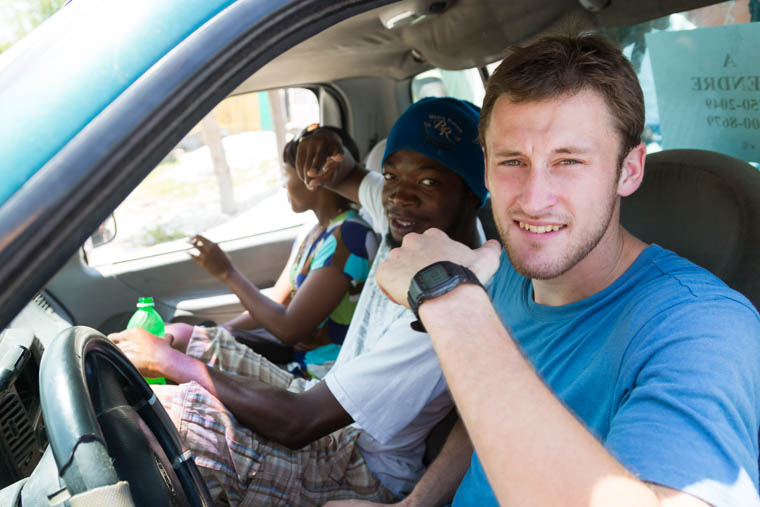
Even with the best intentions, our culture has wired us for productivity—maybe even to a fault. It can be difficult to set the paintbrush or hammer aside for a moment of conversation. Often, we feel called to make a difference and know that short-term mission trips can be an avenue to make an impact, but we also feel the need to make them a healthier experience for everyone involved.
How do you make a positive, sustainable impact on a short-term mission trip?
Begin by asking yourself these questions:
1. Is the organization committed to healthy, long-term partnerships?
As you’re looking for a mission organization to partner with, ask them about the story of the community. What led them to work in this place? Who are the key partners or relational connections that make the work sustainable? Will you just be a part of a project for the week or are you part of a bigger vision that is locally inspired? Asking these kinds of questions can help give you insight into the health of an established partnership and how your mission team fits into the overall story.
2. Are you willing to come back to a community multiple years in a row? (Or go for a month or more?)
Over the years, mission trips have gotten a bad reputation for becoming a “voluntourism” experience where the people coming expect a sort of vacation with ministry added or humanitarian relief mixed into their good time.
But being part of the challenging work of community development and cross-cultural bridge building requires more from us beyond this initial visit to a far-away place.
At Experience Mission, we often see a deeper impact in the lives of team members and locals when groups are willing to commit to a location long-term and relationships are allowed to grow deeper over time.
3. Are you prepared to tell the stories of local champions, not just your own?
Sharing about your experience during the trip or after you get home can be challenging because you want to show the impact but also respect the dignity, privacy, and stories of the people who have welcomed you in. Not sure how to implement some best-practices? Read more about How to Use Social Media on Your Mission Trip as a starting point.
—
When we’re willing to put our own agendas aside, ask hard questions, and recognize the role we play in the context of a short-term mission trip, it can be a small step toward making the experience healthier for everyone involved. Instead of seeing the wonderful individuals we meet as simply “these people” who allowed us to step into their world or culture for a week, we can begin to develop real friendships with mutual impact. Each of us can leave feeling like the world is a little bit smaller and like maybe we have something in common after all.
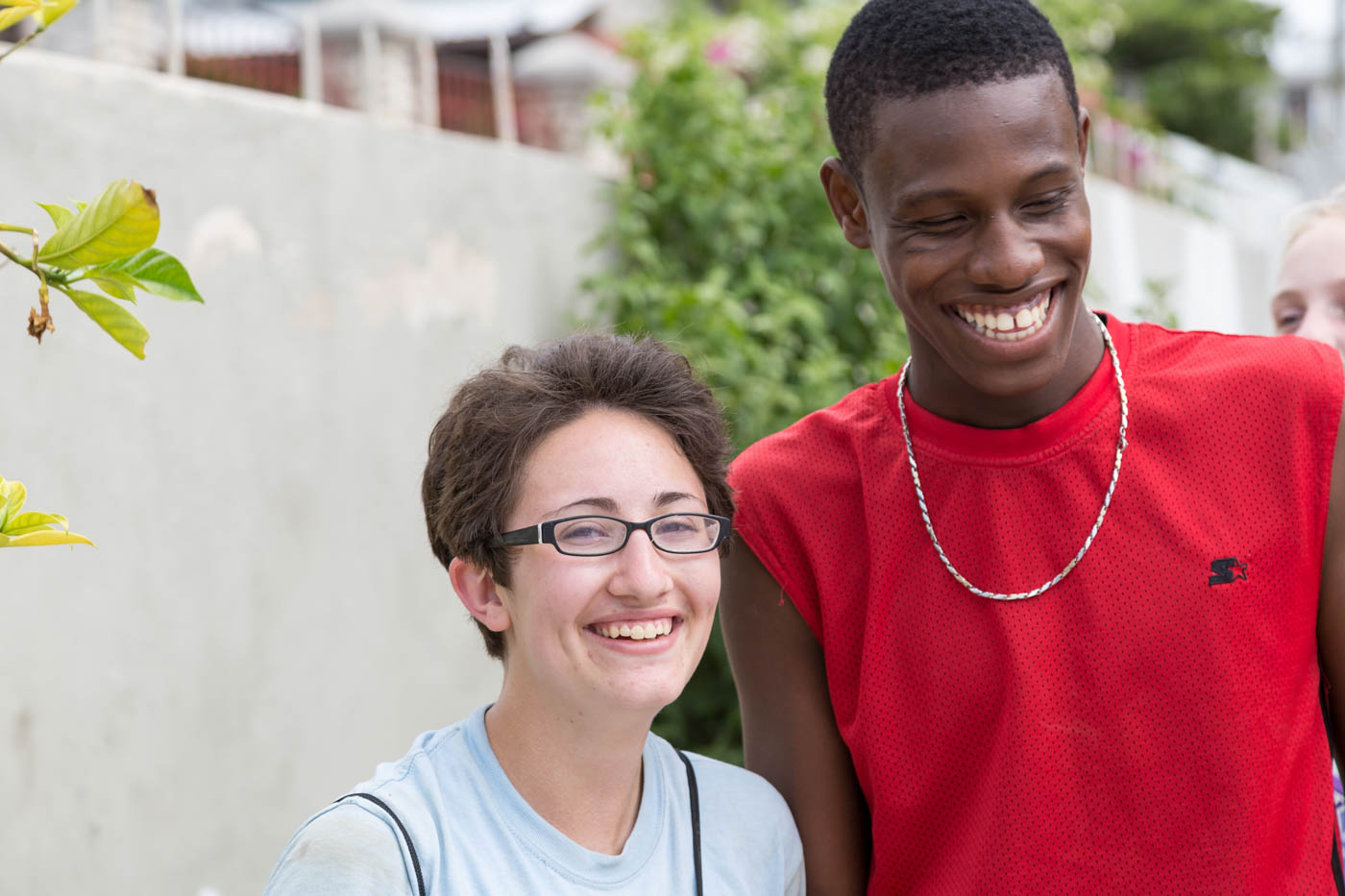
Love and serve others like Jesus on a 1-2 week mission trips (like EM's Urban Mission Trips) or a 1-9 Month IMMERSION program!
More IMMERSION Stories

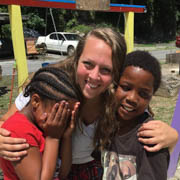
Site developed and hosted by Skycog, Inc.
